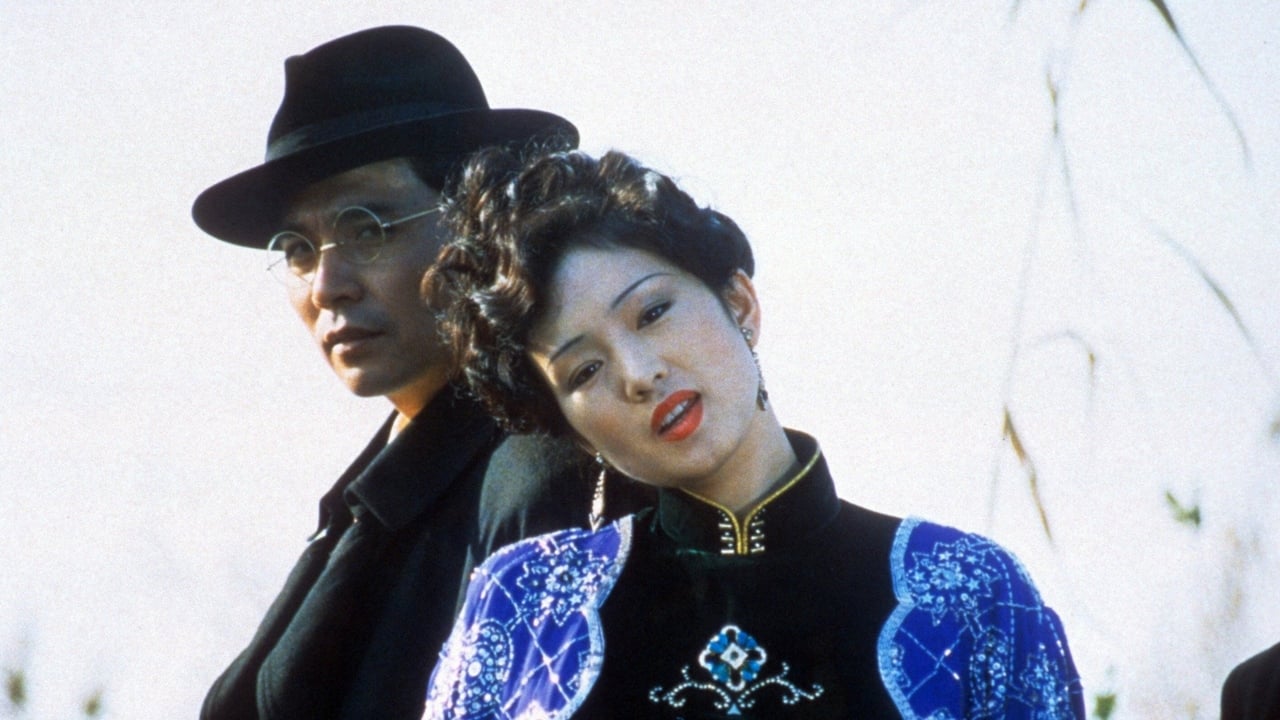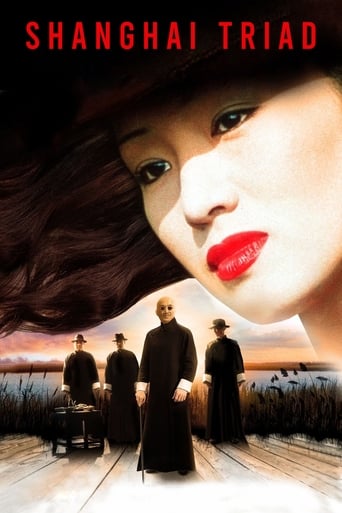

Very very predictable, including the post credit scene !!!
... View MoreWhat makes it different from others?
... View MoreSurprisingly incoherent and boring
... View MoreYour blood may run cold, but you now find yourself pinioned to the story.
... View MoreA country lad in brought to Shanghai to be a servant to a gangster's moll. There's not a whole lot to say about this movie, it's pretty standard stuff about evil corrupting and destroying everything it touches, et cetera. Li Gong's performance is good as always, and the sumptuous photography is a delight to behold, although the color palette appears muted on the DVD. The plot and Li's character take some interesting turns in the third act, but it's not quite enough up for the mundane build-up. Although it's not one of Zhang's best, especially from this period, it's perfectly watchable and sticks with you for a bit.
... View MoreThe big plus here is in the visual department It is gorgeously filmed with deep, rich colors.The story isn't that much. You keep excepting it to get better. It holds that promise but doesn't deliver until the ending, which has a neat no-nonsense twist. I really liked and admired that ending and wish more movies had realistic finishes like this.Gong Li, who stars in here, plays a character that is interesting for the first half of the film but her spoiled-brat routine gets annoying after awhile. The main gangster, however, is an interesting guy throughout.I've watched this twice and, frankly, expected more both times.
... View MoreHere's something you don't see every day - a mobster movie that focuses on the evil of criminals, instead of their coolness. "Shanghai Triad" shows you how mob violence destroys the life of a gangster's moll and endangers her innocent, fresh-from-the-country servant. It's exactly the kind of story you wouldn't see in a Hollywood movie - which is, I suppose, why we watch this weird foreign stuff!Gong Li is, as ever, forceful and compelling, with a role that's infinitely more interesting than what America's "lead" actresses usually get. She's very glamorous here, and totally unlike the peasant characters she played in "To Live" and several other films. What a wonderful, versatile actress.The film's other strengths include gorgeous, award-winning cinematography, interesting point-of-view shots, and an effective shift from an urban to a country setting that's pulled off very smoothly. It's a shame that this is the last film that director Zhang Yimou and Gong Li made together, but at least it caps off their collaboration on a high note.
... View MoreIn "Shanghai Triad", Yi-Mou Zhang trains his lens on a gangster's girlfriend and her young servant boy as the mob lurks in the background doing what mobs do. A character study which focuses on Li Gong's wonderful portrayal of a kept woman whose singing and beauty took her from peasant life to wealthy emptiness, there's little story to be found as the film moves serenely from cabaret song and dance numbers to pastoral scenic beauty. Those who appreciate the Chinese culture will enjoy this lyric and beautiful film the most. For many westerners, however, there will not enough of a story arc to make for a satisfying watch. (B)
... View More